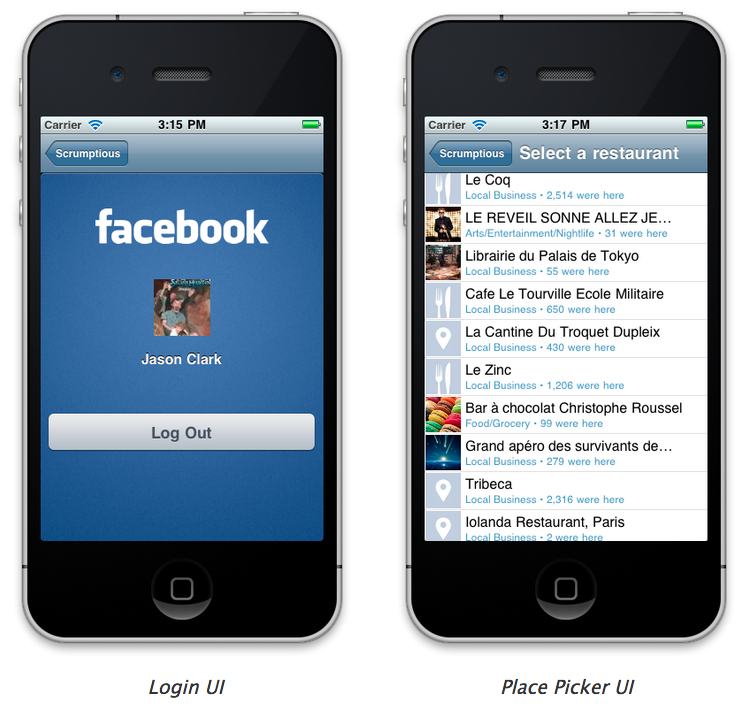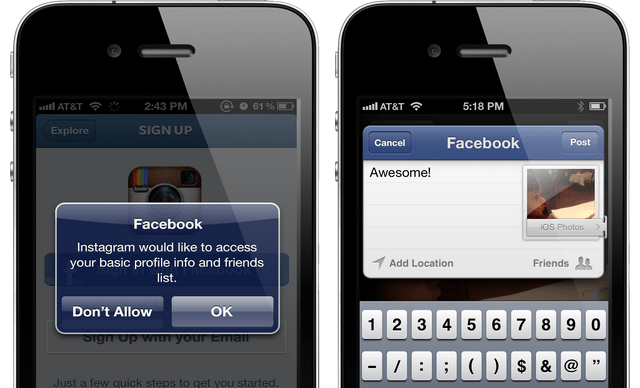It ends with Facebook making more money, but it starts subtly with better tools for mobile app developers. Facebook has just released the Facebook SDK 3.1 for iOS which helps devs integrate their apps with native Facebook login in iOS 6.
Native login lets third-party apps bypass asking for a user’s Facebook email and password. That easier installation process leads to social app growth and fuels Facebook’s plan to turn everyone’s content into its dollars.
Today’s News
Here are the new tools for iOS Facebook app developers offered in SDK 3.1:
- Native Facebook Login -Users login to Facebook once through the settings page and then can instantly give Facebook data permissions to apps without entering their email and password
- Native Sharing Sheets – Apps can populate overlaid sharing sheets to let their users post to Facebook with minimum interruption to their experience
- Native, ready-to-use UI controls including Friend Picker, Places Picker, profile picture control, and login controls – Lets apps integrate advanced Facebook features easily
- Facebook Login support across iOS versions – Helps developers make sure their app works on old iOS builds
- Easy session management – Keeps user access token up to date
- Improved API support – Improves API speed
- Ad analytics (Beta) – Monitors performance of your Facebook mobile news feed ads and how they’re driving installs

Developers can give their feedback to guide future iterations by visiting Facebook’s StackOverflow page and posting with the tag facebook-ios-sdk.
The Mobile Equation
Facebook does not want to compete directly with the Android and iOS app platforms, but instead sit as a social layer above apps on any mobile OS. Its strategy is not hardware, app, or in-app purchase sales. Instead, it wants every app integrated with Facebook and their users sharing everything they do back to the social network.
If it can become the one news feed to rule them all, it can monetize mobile through ads injected into that feed. That might get its investors to stop heralding the shift to mobile as a death sentence.
But to get every app sharing back, Facebook needs to scratch the backs of these developers. So it’s trying to offer the best tools it can. It’s clearing out friction in installs, making advertising easier, and getting integrated apps to run faster. These help apps grow and convince developers to make social a big part of what they build.
In the end it all shakes out to a clear formula for Facebook to monetize its mobile platform and is an explanation for why Facebook loves third-party mobile developers.
Better tools -> more apps and more growth -> more content shared back -> more relevant feed thanks to sorting -> more time spent browsing -> more ad impressions -> more revenue -> Wall Street shutting the fuck up.
